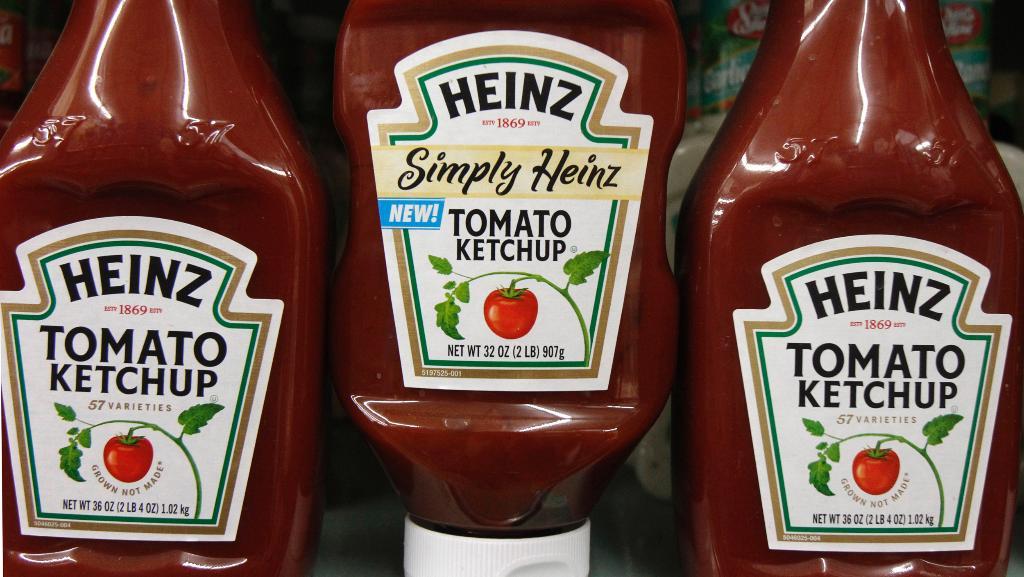Deli meat sales sliced by organic, artisanal brands
'Consumers are looking for clean labels for all kinds of reasons'
The cold cut counter may have to up its game to make ends meet as more U.S. consumers shun processed foods.
Fewer shipments of deli meat, bacon and cheese helped drag sales down 5.1% to $6.5 billion at the end of last year for Oscar Mayer parent Kraft Heinz. Waning consumer interest in for foods such as ketchup, boxed macaroni-and-cheese and frozen dinners may be among the culprits resulting in less distribution in grocery stores.

Healthy sandwhich made with whole-grain bread, lettuce, tomato, cheese, and roasted chicken slices.
KRAFT HEINZ MISSES SALES EXPECTATIONS AS DEMAND FOR BACON, CHEESE FALLS
While Americans have long loved the humble deli sandwich, a number of consumers are cutting back on processed cold cuts such as sliced turkey, ham and roast beef and trying to build a healthier diet.
| Ticker | Security | Last | Change | Change % |
|---|---|---|---|---|
| KHC | THE KRAFT HEINZ CO. | 23.99 | +0.04 | +0.17% |
“There was a time when I was eating cold cuts like ham and turkey practically every day,” Heather Mikesell, editor-in-chief of trade publication American Spa Magazine, told FOX Business. “At some point, I met with a nutritionist who recommended changes to curb nitrate consumption. I’ve cut back significantly in recent years as I try to avoid eating any processed meats.”
Processed foods such as cold cuts tend to be loaded with sodium, which is used as a preservative. A 2-ounce slice of turkey breast, for example, has between 360 and 590 milligrams of sodium. And Oscar Mayer Deli Fresh Ham contains as much as 560 mg of sodium per 2-ounce slice. It also contains sodium phosphate, which has been linked to higher rates of kidney disease, and smoked ham can contain as much as 680 mg per 2-ounce slice, according to an assessment of the best and worst deli meats by food site Eat This, Not That!
As consumers spend more on naturally produced foods, cold cut purveyors have started investing in organic brands to keep their share of the market.
Deli meat brand Hormel Foods, which owns processed meat brands like Spam, acquired Applegate Farms in 2015. The New Jersey-based brand makes meat from animals raised without antibiotics or hormones and has nearly a dozen product categories. Cold cuts still make up 40 percent of its sales, though, with oven-roasted turkey breast among one of its top-selling items, the company said.
The brand, initially sold in organic grocery stores, has a presence at major supermarkets across the country and is sold on Amazon, at college campuses and in healthcare facilities. Applegate is also in select delis, however, retail is the bulk of its business.
“We understand that consumers are looking for clean labels for all kinds of reasons – health, allergies … Consumers don’t want caramel color and phosphates or carrageenan in their sliced turkey."
“We understand that consumers are looking for clean labels for all kinds of reasons," including health and allergies, Applegate Farms president John Ghingo told FOX Business. "Consumers don’t want caramel color and phosphates or carrageenan in their sliced turkey."
Applegate said it’s launching a no-sugar deli ham in March in response to dietary trends such as Whole30 and Paleo, which both cut out sugar.
Boar’s Head started to cater to demand for more natural products with its namesake line Boar’s Head Simplicity in 2016 and last year, it expanded into categories such as beef, turkey, ham, cheese and bacon. It defines “natural” as containing no artificial ingredients, though its products are “minimally processed.” Boar’s Head did not immediately return a request for comment from FOX Business.
Processed deli meat like ham and bacon have been linked to cancer, heart disease and obesity, a study published in the Journal of Academy of Nutrition and Dietetics found in July. But it doesn’t seem to be keeping some Americans from consuming it. U.S. adults are eating just as much processed meat as they did nearly 20 years ago, the study claimed.
“Meats such as bacon, hot dogs, sausages and deli meats are nutrient-dense foods that can offer high-quality protein, Vitamin B12 and many other vitamins and minerals beneficial to health,” Sarah Little, a spokeswoman for the North American Meat Institute, a trade industry association based in Washington, D.C., said in a statement. “There is no high-quality evidence directly linking red and processed meat at levels consumed by the average American to negative health outcomes."




















